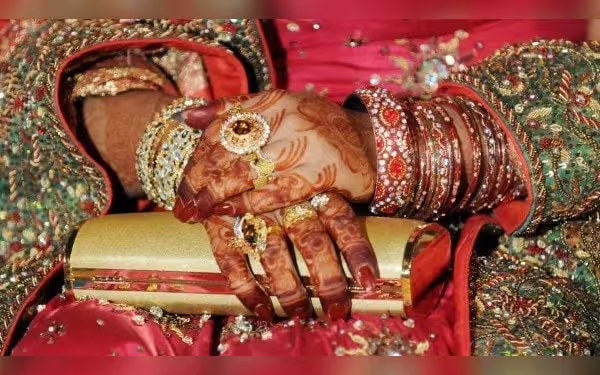Thursday, November 7, 2024 05:48 AM
Importance Of Understanding Nikahnama In Pakistan
- Read Nikahnama to protect your rights.
- Engage in discussions before signing.
- Community programs can educate about Nikahnama.
 Image Credits: tribune.com.pk
Image Credits: tribune.com.pkUnderstanding the Nikahnama is crucial for protecting rights and ensuring equality in marriage.
In Pakistan, the Nikahnama, or marriage contract, is a crucial document that outlines the rights and responsibilities of both partners in a marriage. Unfortunately, many women enter into this significant agreement without fully understanding its contents. This lack of awareness can lead to serious consequences that may affect their lives for years to come.
Syed Khalid Hyder Shah, the Additional Chief Secretary of Local Government, emphasized the importance of being informed before signing the Nikahnama. He stated, "Both the bride and groom have the full right to read and fill out their Nikahnama." This statement highlights a fundamental right that many individuals overlook in the excitement of wedding preparations.
The Nikahnama is not just a formality; it is a legal document that can dictate various aspects of married life, including financial rights, living arrangements, and even the possibility of divorce. Women, in particular, should take the time to understand what they are signing. Ignorance of the terms can lead to situations where their rights are compromised, leaving them vulnerable in their marital relationships.
It is essential for both parties to engage in open discussions about the Nikahnama before the wedding day. Couples should not only read the document together but also seek clarification on any clauses that seem unclear. This proactive approach can foster a sense of partnership and mutual respect, laying a solid foundation for their future together.
Moreover, community awareness programs can play a vital role in educating individuals about the importance of the Nikahnama. By organizing workshops and seminars, local governments and NGOs can empower women with the knowledge they need to make informed decisions. This initiative could significantly reduce the number of women who unknowingly sign away their rights.
Understanding the Nikahnama is not just a matter of legal obligation; it is a matter of personal empowerment. Both brides and grooms must take the time to read and comprehend this important document. By doing so, they can ensure that their marriage begins on a foundation of equality and respect, ultimately leading to a healthier and more fulfilling relationship.













